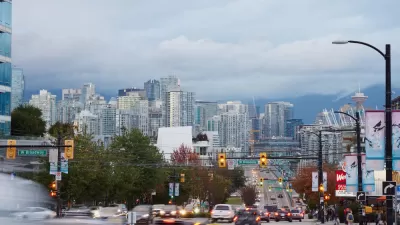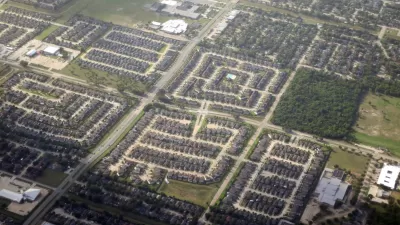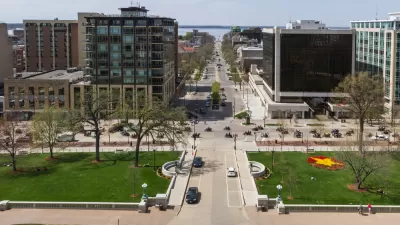Preservation laws often ban additions to designated buildings, which can be counterproductive, says Stephen Smith, who argues that incremental add-ons can protect buildings from future redevelopment driven by market forces.
Smith focuses his attention on New York, which he calls a "hotbed of addition-induced turmoil.":
"The enormous pent-up demand occasionally surges through the legal barriers, with unapproved additions and penthouses popping up throughout the city, and developers sometimes being forced to tear them down."
"A few months ago a building in Dumbo lost six stories that were almost five years old because the owners never got a zoning variance to add residential space to the commercially-zoned property. Developers like Ramy Issac and Ben Shaoul have become infamous as "tenement toppers," and while their tactics are sometimes unsavory and illegal, the fact that anyone is willing to take such a risk is indicative of the extraordinary unmet demand for density in the city."
Thanks to Stephen Smith
FULL STORY: Development as Preservation

Planetizen Federal Action Tracker
A weekly monitor of how Trump’s orders and actions are impacting planners and planning in America.

Maui's Vacation Rental Debate Turns Ugly
Verbal attacks, misinformation campaigns and fistfights plague a high-stakes debate to convert thousands of vacation rentals into long-term housing.

San Francisco Suspends Traffic Calming Amidst Record Deaths
Citing “a challenging fiscal landscape,” the city will cease the program on the heels of 42 traffic deaths, including 24 pedestrians.

Amtrak Rolls Out New Orleans to Alabama “Mardi Gras” Train
The new service will operate morning and evening departures between Mobile and New Orleans.

The Subversive Car-Free Guide to Trump's Great American Road Trip
Car-free ways to access Chicagoland’s best tourist attractions.

San Antonio and Austin are Fusing Into one Massive Megaregion
The region spanning the two central Texas cities is growing fast, posing challenges for local infrastructure and water supplies.
Urban Design for Planners 1: Software Tools
This six-course series explores essential urban design concepts using open source software and equips planners with the tools they need to participate fully in the urban design process.
Planning for Universal Design
Learn the tools for implementing Universal Design in planning regulations.
Heyer Gruel & Associates PA
JM Goldson LLC
Custer County Colorado
City of Camden Redevelopment Agency
City of Astoria
Transportation Research & Education Center (TREC) at Portland State University
Jefferson Parish Government
Camden Redevelopment Agency
City of Claremont





























